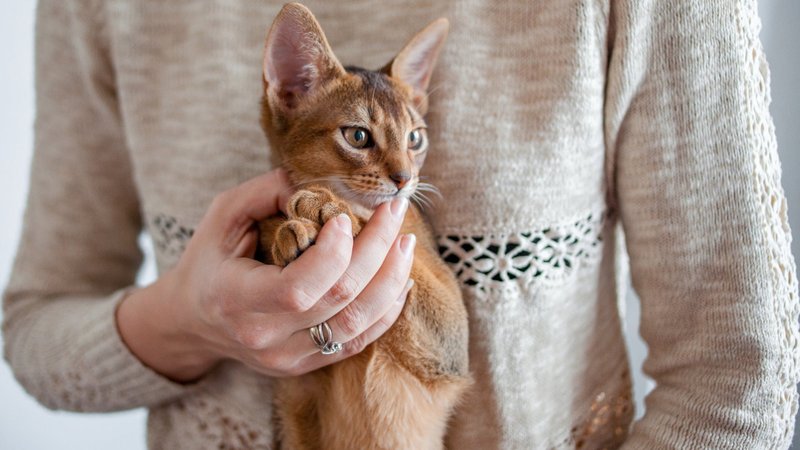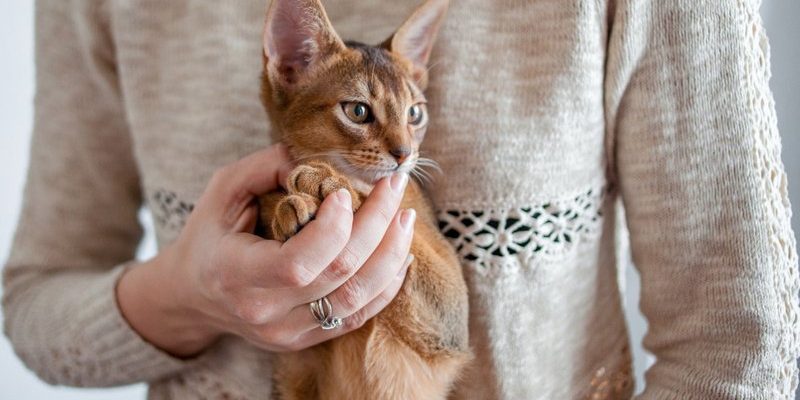
Abyssinians are generally healthy cats, but they aren’t immune to certain conditions. Taking care of them goes beyond just feeding and playtime. You might find yourself feeling overwhelmed with all the information available, but don’t worry! We’ll break it down so you can keep your furry friend purring happily for years to come.
Dental Disease
Abyssinian cats are prone to dental issues, just like many other breeds. Dental disease can sneak up on you, often starting with a bit of bad breath. Over time, plaque can build up, leading to more severe problems like gum disease or tooth loss. It’s a bit like neglecting your own dental care—what starts as a small issue can grow into something serious.
To keep your Abyssinian’s teeth in top shape, regular dental care is key. Here are a few simple steps you can take:
- Brush their teeth: Ideally, get a toothbrush and toothpaste made specifically for cats. Start slow and make it a positive experience.
- Provide dental treats: Look for treats that help reduce plaque and tartar build-up. They can double as fun snacks!
- Regular vet check-ups: Make sure to include dental health in regular vet visits. A professional cleaning might be needed sometimes.
Being proactive about dental care can save your cat from a lot of pain and discomfort down the line.
Kidney Disease
Kidney disease is another health issue that can affect Abyssinians, especially as they age. Imagine your kidneys as the body’s filter system. They help eliminate waste and maintain the balance of fluids in the body. When they don’t work properly, the entire system is affected. Symptoms can include increased thirst, frequent urination, and weight loss.
To help prevent kidney disease, consider the following approaches:
- Hydration is key: Ensure your Abyssinian drinks plenty of water. Some cats prefer running water—using a cat water fountain can be a great upgrade!
- Healthy diet: Feed them high-quality food that supports kidney health. Look for options with appropriate protein levels and low phosphorus.
- Regular veterinary visits: Keep an eye on kidney function through routine check-ups, especially as they get older.
A little vigilance can go a long way in keeping your cat’s kidneys healthy and functioning well.
Gastrointestinal Issues
Gastrointestinal problems can arise in Abyssinians too, leading to issues like vomiting or diarrhea. It can be stressful when you see your cat struggling with these kinds of problems. Just like how we might feel under the weather, cats can get easily affected by changes in their diet, parasites, or stress.
To keep their digestive systems running smoothly, consider these tips:
- Gradual diet changes: If you need to switch foods, do it gradually over a week to prevent an upset stomach.
- Quality food: Choose cat food that’s high in fiber and has good ingredients. Avoid fillers that can cause tummy troubles.
- Regular vet visits: If your cat has ongoing issues, don’t hesitate to consult your vet for advice or possible tests.
Taking care of their diet can go a long way toward preventing these pesky digestive disturbances.
Obesity
It’s easy for any cat to gain a few extra pounds, but Abyssinians are particularly at risk for obesity if they don’t get enough exercise. Think of it this way: just like we need to balance our diet with physical activity, your cat does too. An overweight cat can face many health challenges, including diabetes and joint problems.
To keep your Aby healthy and fit, follow these guidelines:
- Playtime: Engage them with toys daily. Cats love to chase—and playtime isn’t just exercise; it strengthens your bond as well.
- Portion control: Pay attention to their feeding portions. Use a measuring cup to avoid overfeeding.
- Regular vet check-ups: Monitor their weight at vet visits, and get advice tailored to your cat’s needs.
A bit of fun and awareness can help keep your Abyssinian in great shape!
Hypertrophic Cardiomyopathy (HCM)
Hypertrophic cardiomyopathy (HCM) is a serious heart condition that can affect Abyssinians. It’s like a silent thief, often sneaking up without many obvious symptoms until it’s advanced. You might notice your cat becoming slightly lethargic or even showing signs of breathing difficulties as it worsens.
To reduce the risk of HCM in your Abyssinian, consider these preventive measures:
- Regular vet check-ups: Keep up with routine exams to detect any potential issues early on.
- Healthy weight: Ensuring your cat maintains a healthy weight can help prevent additional stress on their heart.
- Awareness of family history: If you know of any relatives with HCM, share that information with your vet.
Knowledge is power when it comes to your cat’s heart health.
Taking care of an Abyssinian cat means more than simply enjoying their playful antics; it’s about being aware of potential health issues and taking steps to prevent them. From dental disease to obesity, there’s a lot to think about. But remember, small changes can lead to big improvements in your cat’s life.
You love your furry friend, and with a little effort and knowledge, you can help keep them healthy and happy well into their golden years. So grab that catnip toy, play a bit, and keep making those memories together!

